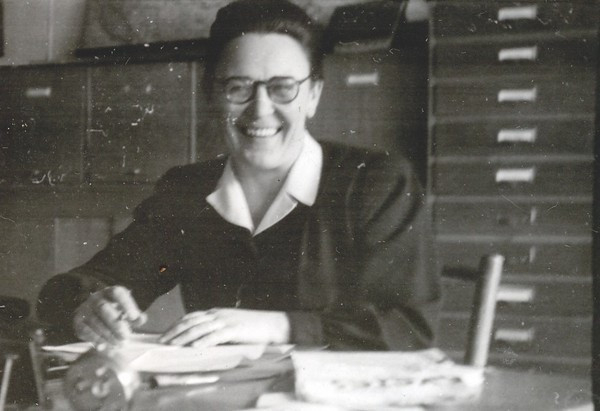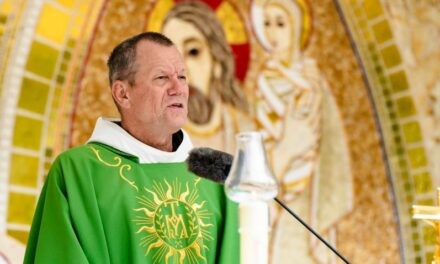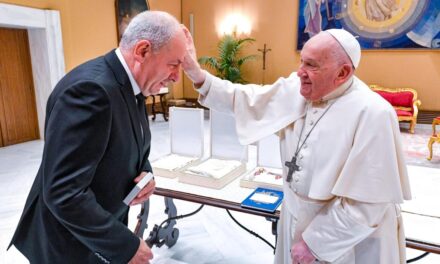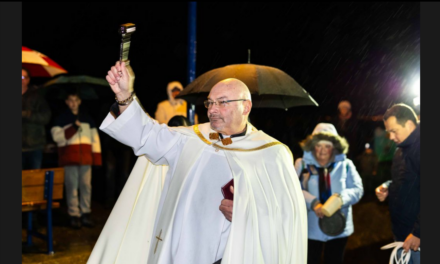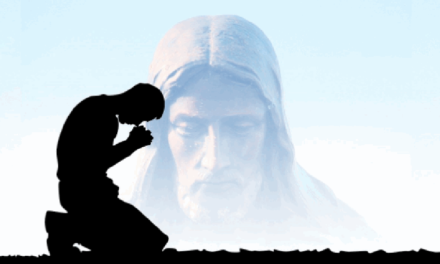77 years ago, the archers shot Sára Salkaházi, who was beatified by the Holy See 15 years ago in 2006, into the icy Danube together with five nuns.
Sára Salkaházi was born on May 11, 1899 in Kassa. Her original name was Sarolta Klotild of Schalkház.
Sára's youth showed the attempts of a talented person looking for his place. She obtained a teacher's certificate, but only taught for one year. When the part of the country was annexed to Czechoslovakia under the terms of the Trianon Peace Treaty, it consciously accepted the fate of a minority. As a scion of a hotel-owning family, he studied bookbinding and then worked in his sister's hat shop. He was also a journalist, writer and newspaper editor. She tried to respond to the great social differences with great social sensitivity with her publications and her organizing work affecting girls and women.
In 1927, he met the social brothers who settled in Kassa. He completed the social and public welfare course organized by them, and in spirit he became closer and closer to the spirit of the Society of Social Brothers founded in Hungary by Margit Slachta in 1923.
In 1929, he joined the Society of Social Brothers, which follows the ancient monastic ideal in a modern form. He first organized the work of Karitász in Kassa, then in August 1937 he permanently moved to Budapest. In the mother's house, he was always given a position that there was no man for the job. In one year, he was active in eighteen different work areas.
He took his eternal vows on Pentecost 1940. Password:
"Alleluia! Ecce ego, mitte me!” (Here I am, send me!) In 1942 - when many people took back their original German names as a result of German friendship - he changed his name to Salkaházira.
Margit Slachta and the Society of Social Brothers fought with all means against the National Socialist fluke flooding the country. This entailed serious risks, which the brothers consciously undertook. Brother Sára wrote in his diary in April 1940: "...I should not be afraid of torture, I should welcome small physical weaknesses, I should be happy about death".
The social brothers took part in rescuing the persecuted – which required no small courage. About a thousand people owe their lives to them, nearly a hundred of them personally to brother Sára. All the houses of the Company in Budapest and in the countryside were full of hideouts equipped with false papers. On December 27, 1944, the Arrowmen surrounded the working women's home in Bokréta Street, which was under the leadership of brother Sára. They searched for Jews and detained four suspicious persons as well as religious teacher Vilma Bernovits. Brother Sára was not in the house at the moment, he only came for the final word. He could have avoided arrest, but he didn't. As the responsible manager of the home, he was also dragged away, and according to an eyewitness, all six of them were shot into the icy Danube at the foot of the Freedom Bridge, stripped naked, that same evening. In the minute before the execution, Brother Sára knelt down, turning towards his murderers, and with his gaze raised to heaven, he made a large cross over himself. God accepted his offer of life, his life sacrifice was fruitful.
In 1972, the Yad Vashem Institute in Jerusalem included him among the Righteous Among the Nations for his heroic life-saving activities.
In 1996, the Minister of the Interior of the Republic of Hungary awarded brother Sára a posthumous "Courage Badge" in recognition of his brave behavior and standing. His memory is preserved by numerous plaques and memorial sites, and a square and a quay are named after him.
His beatification procedure was initiated by the Society of Social Brothers at the end of 1996, and was approved by the Holy See in January 1997. His Beatification decree was signed on April 28, 2006 by XVI. Pope Benedict, and his solemn proclamation took place on September 17, 2006, in the square in front of the Basilica of Saint Stephen in Budapest. The festive mass was presented by Cardinal Péter Erdő.
Source, full article and image: Magyar Kurír

